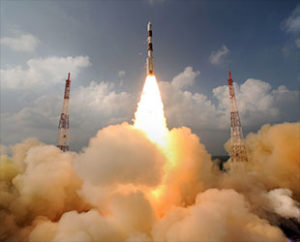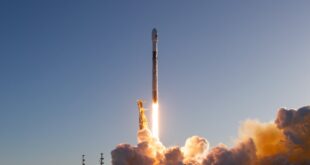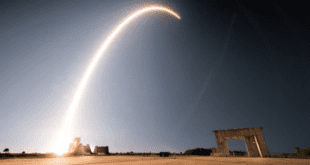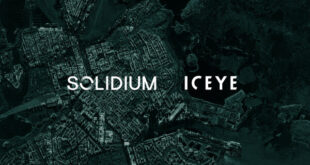
Spaceflight, a satellite rideshare and mission management company, has announced that it will launch twelve satellites on board an Indian Space Research Organisation (ISRO) Polar Satellite Launch Vehicle (PSLV) later in November 2018, to include a satellite for Australian New Space company Fleet Space Technologies, who are having two satellites launched this coming week from New Zealand by Rocket Lab.
“This is Spaceflight’s seventh launch with PSLV and following this mission, we will have sent 66 spacecraft to orbit aboard PSLV rockets,” said Curt Blake, president of Spaceflight. “We value our partnership with such a reliable launch vehicle provider. PSLV’s routine launches enable us to provide satellite developers access to space and meet the growing demand from the smallsat industry.”
One of the satellites aboard the mission is the second satellite from IoT start-up Fleet Space, which aims to create a constellation of nanosatellites over the next several years, in order to establish a scalable, global network to help connect many of the 75 billion sensors expected to cover the world over the next decade. The nanosatellites will bring mass-scale efficiencies for industries including agriculture, mining, and logistics by enabling businesses to gather complex, revealing data to improve operations.
“The launch of our satellite is a huge milestone and we are thrilled to work alongside some of the world’s leading space innovators,” said Fleet Space Technologies co-founder and CEO Flavia Tata Nardini.
“Spaceflight and launch vehicle providers such as PSLV, are helping to enable frequent and reliable access to space, which will be critical as we continue to build our constellation.”
In addition to PSLV, Spaceflight works with nearly every global launch vehicle, including the SpaceX Falcon-9, Antares, Dnepr, Electron, Vega, Soyuz, and LauncherOne, thus increasing flexibility and providing satellite developers with a broad range of launch options if delays occur.
Further, their small satellite rideshare service model helps organizations reach a desired orbit at a much lower cost than buying their own launch vehicle.
Spaceflight has negotiated the launch of more than 150 satellites on behalf of its customers and has contracts to deploy nearly 100 more through the remainder of 2018. The company plans to coordinate and deploy its largest launch to date in 2018 with its first dedicated rideshare mission aboard a SpaceX Falcon-9.
The Spaceflight payloads aboard this mission include Fleet Space Technologies’ Centauri I, Harris Corporation’s HSAT, Spire’s LEMUR satellites, and BlackSky’s Global-1 microsatellite.





